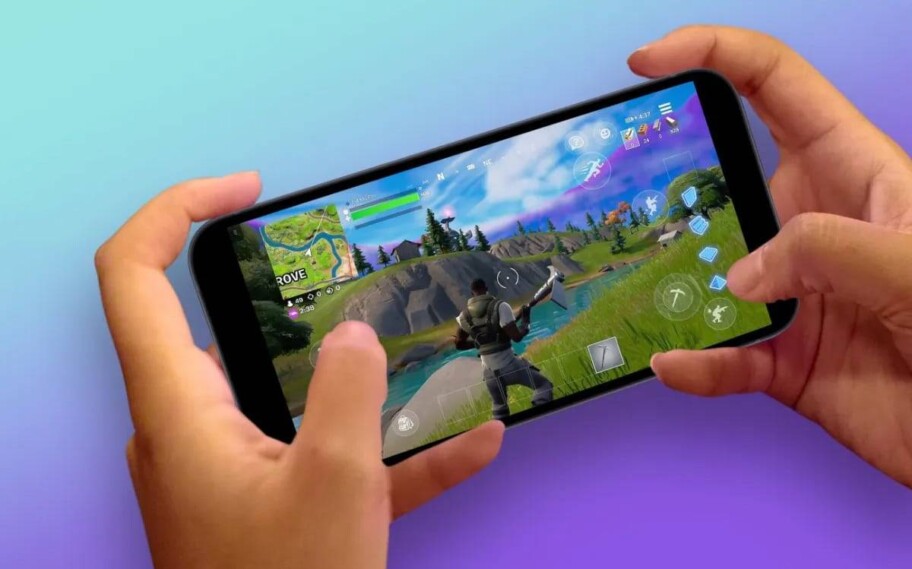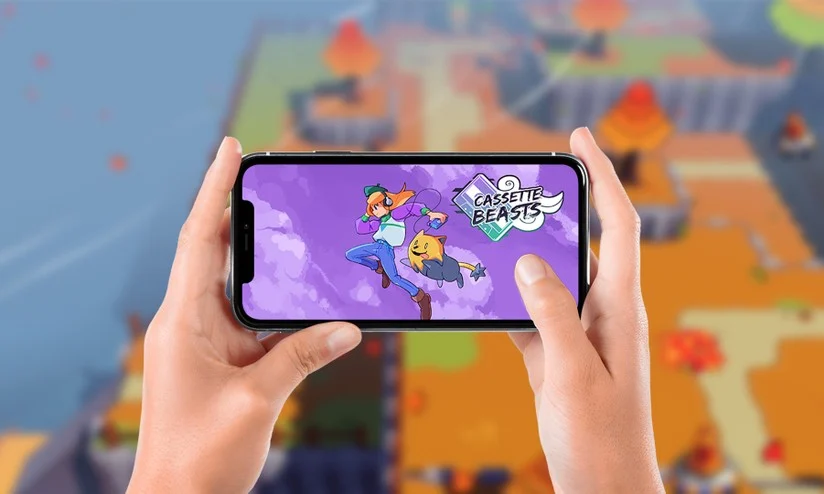Adverts
The growing popularity of mobile games is no coincidence. Behind the vibrant graphics and challenging challenges lies a complex universe of psychological techniques meticulously designed to capture and maintain players’ attention.
In this text, we will reveal the hidden secrets that make these games a real trap for millions of people around the world.
Adverts
Discover how seemingly harmless elements like notifications and rewards are used to fuel a continuous cycle of engagement and why it's so hard to resist the temptation of one last game.
Over the years, game developers have invested heavily in understanding human behavior, resulting in apps that use everything from vibrant colors to catchy music to stimulate pleasure and excitement.
Adverts
Furthermore, the ease of access, combined with sophisticated programming, creates an almost irresistible experience, leading many to spend hours immersed in their mobile devices. Understanding these strategies is the first step to regaining control and avoiding falling into the traps of addiction.
Understanding the hidden dangers of mobile gaming is essential to protecting not only your time, but also your mental health and well-being.
This is an invitation to reflect on the impacts of these games on our daily lives and to learn about strategies that help minimize their negative effects. Embark on this journey of discovery and acquire tools for a healthier and more conscious relationship with the world of mobile games. 🎮✨

Mobile Gaming: The Sneaky Path to Addiction
Ah, mobile games! Who would have thought that those colorful pixels and addictive melodies would get us so hooked that we would forget to drink water? Yes, my friends, we are talking about the culprits that make us lose track of time in bank lines, doctor's offices and even in the bathroom. What started as an innocent way to pass the time has become a global addiction. But why are mobile games so addictive? 🤔
First, they have a trick up their sleeve: they are incredibly accessible. With a simple tap on your phone screen, you have access to a world of possibilities, from taking care of a virtual farm to becoming a medieval warrior. And the best (or worst?) thing is that all of this fits in the palm of your hand. Another point is the instant gratification. Who has never found themselves thinking “just one more level” and, before they knew it, it was already three in the morning? Well, they capture us with quick challenges and constant rewards.
The Hidden Pitfalls of Mobile Games
Now, let’s unmask the most treacherous traps of mobile games. Are you ready? They not only capture our attention but also, sometimes, our money! Yes, my friends, those “free” games often hide hidden costs. In-app purchases are the villains of the story. Who has never spent a few dollars to earn virtual coins or unlock exclusive levels? That is, when we haven’t given in to the temptation of buying a new skin for our character!
Another trap is the continuous reward system. You know that little digital pet that needs to be fed every day? Well, many games use this same concept to keep us connected. Missing a day means missing out on daily rewards, and nobody wants to fall behind, right? This mechanic traps us in a vicious cycle, where we always feel like we have to come back for “just one more game”.
Why Is It So Hard to Let Go?
You might be wondering: why is it so hard to stop playing games? It’s simple, it’s a combination of game design elements and human psychology. Developers know exactly how to push the right buttons in our brains to keep us engaged. One of the tactics they use is intermittent reinforcement. Instead of rewarding every action, games reward us in unpredictable ways, keeping us on our toes and eager for more.
Then there’s the social aspect. Many games encourage interaction with other players, creating online communities. And let’s be honest, there’s something very appealing about being part of a group and sharing victories and defeats with virtual friends. At the end of the day, we don’t just want to play, we want to belong.

Real Life Impacts: Where Is the Limit?
The impacts of mobile games on real life are more serious than they seem. Who has never heard the phrase “just five more minutes” that quickly turned into wasted hours? This lack of attention can lead to problems at work, in studies and even in personal relationships. Just imagine, swapping a romantic dinner for an epic battle in Candy Crush? It seems like an exaggeration, but it is more common than you think!
Furthermore, excessive screen time can have negative effects on physical health. Tired eyes, poor posture, and even insomnia are just some of the problems faced by avid gamers. And let’s not even talk about a sedentary lifestyle!
Signs You May Be Addicted
So how do you know if you’ve fallen into the trap of mobile gaming addiction? Here are some warning signs:
- You find yourself thinking about playing even when you are doing other activities.
- Feeling irritable or anxious when you can't play.
- Prioritize the game over important commitments.
- Spending more money than you'd like on in-game purchases.
- Difficulty stopping gambling, even when you know you should.
How to Regain Control: Strategies for Detoxification
Don’t panic! If you feel like you’re spending too much time playing games, there are ways to regain control. First, try setting time limits. Use apps that block or limit your phone usage after a certain amount of time. It may seem drastic, but it works! Also, find alternative activities that can be equally enjoyable, such as reading a book, playing sports, or even meditating.
Another strategy is to turn off game notifications. They’re designed to constantly grab your attention. Without them, you’ll have more control over when and how you access your games. And of course, don’t forget to socialize in the real world! Meeting up with friends and family can be the perfect distraction to reduce your gaming time.

The Role of Industry in Change
While individuals can take steps to control their gaming use, the industry also has a crucial role to play. Mobile gaming companies need to be more transparent about the addictive mechanics they employ. Initiatives to promote responsible gaming, such as built-in time limits or usage alerts, would be welcome. After all, not everything needs to be a perpetual episode of “Black Mirror.”
Mobile gaming addiction is a modern phenomenon, but that doesn’t mean we have to fall victim to it. With a few strategies, we can get back to using our phones for what they were originally designed for: making calls! 😅
Conclusion
In short, mobile games, while offering accessible and engaging entertainment, have subtle pitfalls that can lead to addiction. 🌐 With a combination of attractive design, intermittent rewards, and constant updates, these games are designed to capture users’ attention and encourage them to play again and again. Indeed, the hidden dangers associated with mobile gaming addiction are real and can affect individuals’ mental, financial, and social well-being.
Furthermore, the ease of access and portability of mobile devices increases the risk of developing compulsive behavior, since games are always within reach. It is crucial that players are aware of these pitfalls and adopt strategies to manage their gaming time responsibly. This may include setting time limits, turning off notifications, or seeking alternative leisure activities that do not depend on the use of electronic devices. 🎮
Ultimately, understanding the hidden dangers of mobile gaming is the first step to preventing addiction and promoting healthy use of technology. Awareness and balance are essential to ensure that digital entertainment remains a source of fun, not a trap. 🚀




